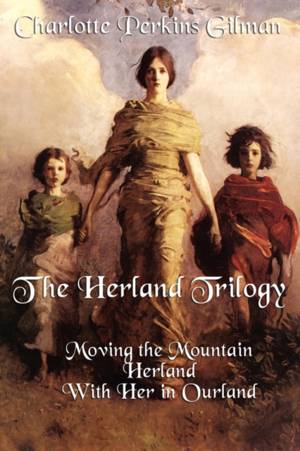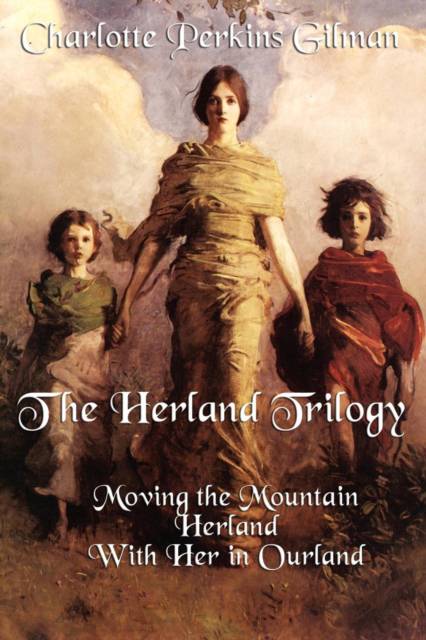
- Retrait gratuit dans votre magasin Club
- 7.000.000 titres dans notre catalogue
- Payer en toute sécurité
- Toujours un magasin près de chez vous
- Retrait gratuit dans votre magasin Club
- 7.000.0000 titres dans notre catalogue
- Payer en toute sécurité
- Toujours un magasin près de chez vous
The Herland Trilogy
Moving the Mountain, Herland, with Her in Ourland
Charlotte Perkins Gilman
Livre broché | Anglais
37,45 €
+ 74 points
Format
Description
Moving the Mountain is the first book in Charlotte Perkins Stetson Gilman's well known trilogy. The second book in the trilogy is her land mark classic Herland. Moving Mountain delivers Gilman's program for reforming society. She concentrates on measures of rationality and efficiency that could be instituted in her own time, largely with greater social cooperation - equal education and treatment for girls and boys, day-care centers for working women, and other issues still relevant a century later. Yet Gilman also allows for technological progress: electric power is the motive force in industry and urban society, power generated largely by the tides, wind-mills, water mills, and solar engines. Herland is a utopian novel written by feminist Charlotte Perkins Gilman. The book describes an isolated society composed entirely of women who reproduce via parthenogenesis. The result is an ideal social order, free of war, conflict and domination. The story is told from the perspective of Van Jennings, a student of sociology who, along with two friends, Terry O. Nicholson and Jeff Margrave, forms an expedition party to explore an area of unchartered land where it is rumored lives a society consisting entirely of women. The three friends do not really believe the rumors as they are unable to conceive of how human reproduction could occur without males. The men speculate about what a society of women would be like, each guessing differently based on the stereotype of women which he holds most dear With Her in Ourland is the third book in Charlotte Perkins Gilman's utopian trilogy which begins where Moving the Mountain and Herland left off. Gilman masterfully compares our real modern male dominated world with an imaginary perfect society comprised of only woman. Gilman was a well known and deeply respected sociologist and this trilogy holds an important place in feminist fiction.
Spécifications
Parties prenantes
- Auteur(s) :
- Editeur:
Contenu
- Nombre de pages :
- 352
- Langue:
- Anglais
Caractéristiques
- EAN:
- 9781617204463
- Date de parution :
- 10-11-11
- Format:
- Livre broché
- Format numérique:
- Trade paperback (VS)
- Dimensions :
- 152 mm x 229 mm
- Poids :
- 517 g

Les avis
Nous publions uniquement les avis qui respectent les conditions requises. Consultez nos conditions pour les avis.






